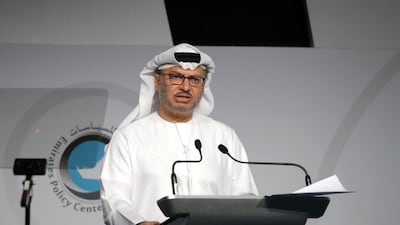The debate about how much technology has transformed diplomacy will still be raging decades from now, just as it first did years ago. In the 19th century, British prime minister Lord Palmerston is reported to have described the introduction of the telegram as “the end of diplomacy”. The age of Twitter makes telegram sending seem quaint by comparison, but what we know is that when used effectively, the platform can make our diplomats and policy-makers nimble, concise and precise in their pronouncements.
Consider recent social media statements by Dr Anwar Gargash, the Minister of State for Foreign Affairs. On Friday, he tweeted about Yemen. The Houthis last week killed former president Ali Abdullah Saleh after a major schism was exposed between his faction and the militia. Two days before his death, Saleh had sought a fresh start with the Saudi-led coalition. Reading this as shorthand for a coup, the Houthis acted.
Dr Gargash tweeted that after these events, the Houthis “stand powerless in this new reality, a sectarian militia of thieves, which draws its power from fear, by way of arms.” He went on to say that “Yemen stands ahead of a new political map, an era that must see a united front against the Houthis. The militia is now exposed in Yemen, regionally and internationally.”
The message is clear. The Houthis have often obscured the toxic nature of their agenda, but events this week suggest Yemen is moving towards that new reality, one in which the Houthis’ hand has been revealed and where the Saudi-led coalition is prepared to stay the course to end Yemen’s nightmare.

